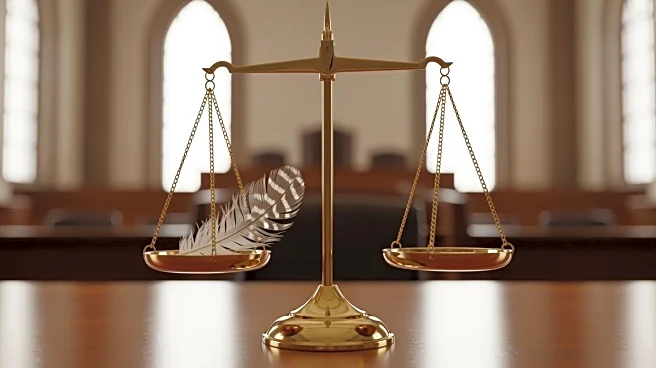What's Happening?
Denmark and Greenland have issued an official apology for their involvement in the forced contraception of Greenlandic Indigenous girls and women, a practice that dates back to the 1960s. The apology was delivered by Jens-Frederik Nielsen, the Prime Minister of Greenland, and Danish Prime Minister Mette Frederiksen. The issue came to light after nearly 150 Inuit women filed lawsuits against Denmark, claiming that Danish health authorities violated their human rights by fitting them with intrauterine contraceptive devices (IUDs) without their consent. The practice reportedly affected as many as 4,500 women and girls, representing half of the fertile women in Greenland at the time. The governments acknowledged the physical and psychological harm caused by these actions and expressed regret for the systematic discrimination against Greenlanders.
Why It's Important?
The apology marks a significant acknowledgment of past injustices and human rights violations against Indigenous populations. It highlights the broader issue of systemic discrimination and the need for accountability in historical mistreatment cases. The forced contraception policy was intended to control population growth in Greenland, reflecting a paternalistic approach to governance and healthcare. This apology could pave the way for compensation and healing for the affected women and their communities. It also serves as a reminder of the importance of consent and human rights in healthcare practices, potentially influencing current and future policies in Denmark, Greenland, and beyond.
What's Next?
A report related to the investigation into the mistreatment is expected next month, which may provide further insights into the extent of the violations and the impact on the affected women. The Greenland government has committed to awarding compensation to the victims, which could lead to legal and financial implications for both Denmark and Greenland. The apology may also prompt other countries to examine their historical treatment of Indigenous populations and consider similar actions to address past injustices.
Beyond the Headlines
The apology raises ethical questions about the role of government in personal health decisions and the long-term impact of colonial policies on Indigenous communities. It underscores the need for cultural sensitivity and respect for Indigenous rights in policy-making. The case may influence international discussions on reparations and reconciliation for historical injustices, encouraging a broader movement towards acknowledging and rectifying past wrongs.









